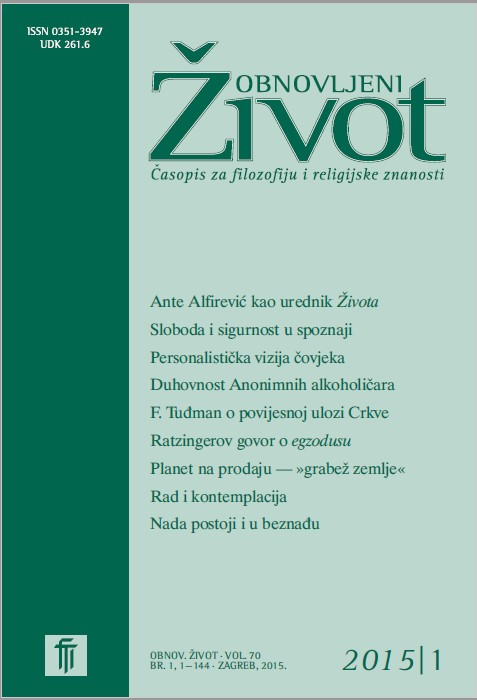Ratzinger’s Understanding of the »Exodus« and the Two »Return« Attempts
Keywords:
Exodus, enculturation, theology of the Incarnation, theology of the Cross, »return« attempts, liberation theology, »Mosaic distinction«Abstract
The historical Exodus from Egypt has as its final goal the making of a covenant on Mount Sinai, while the Earth is to be a place of true worship and righteousness among people in harmony with God’s law. In the broader sense, the Exodus is the abandoning of self–love and of false self–realization in the walk toward freedom and self–realization in the Cross of Christ which is the perfect Exodus. Ratzinger’s grasp of the Exodus may be the key to a correct understanding of what it means to be a member of the Church and that of enculturation which, moreover, does not imply disenculturation of its complex cultural identity. Similarly, the Exodus has the potential to synthesise diverse views on Incarnation theology and on the theology of the Cross, and can facilitate a correct understanding of the scholastic axiom »Gratia praesupponit naturam.« »Return« attempts within liberation theology are considered by Ratzinger to be processes which do not lead to truth and tolerance, but rather to the dictatorship of relativism, and are therefore retrograde, as is also Assmann’s »Mosaic distinction«
Downloads
Published
Issue
Section
License
Jednom prihvaćeni članak obvezuje autora da ga ne smije objaviti drugdje bez dozvole uredništva, a i tada samo uz bilješku da je objavljen prvi put u Obnovljenom životu. Uredništvo će obavijestiti autora o prihvaćanju ili neprihvaćanju članka za objavljivanje.
Članci objavljeni u časopisu se, uz prikladno navođenje izvora, smiju besplatno koristiti u obrazovne i druge nekomercijalne svrhe.


